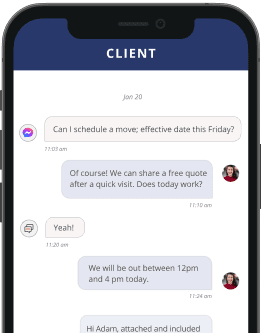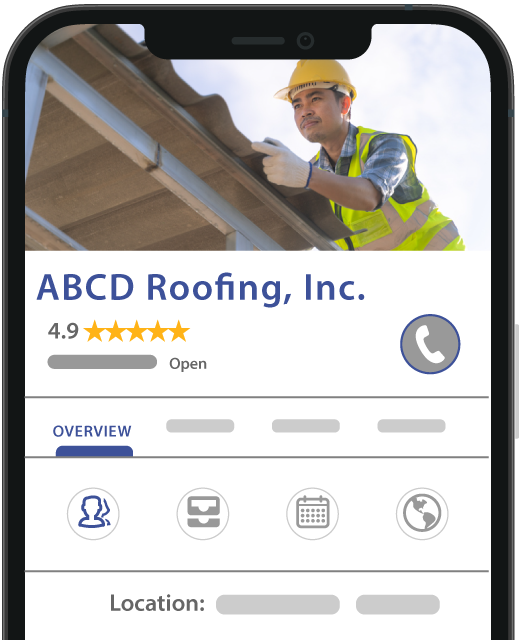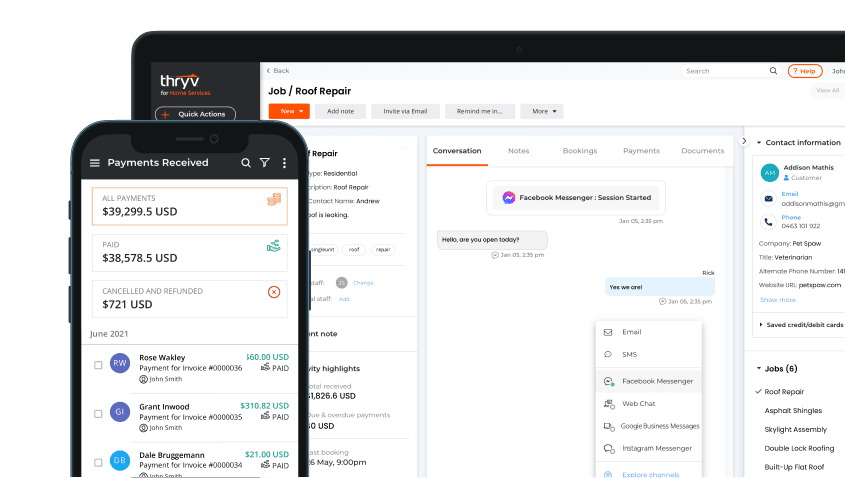How to earn your roofing license and become a certified roofer
Starting your career in roofing can be a smart move. It’s hands-on, in-demand, and opens the door to building your own business. But before you climb up that first ladder, you’ll need to get your credentials in order. Fortunately, this guide walks you through how to earn your roofing license so you can become a certified roofer and set yourself up to grow a certified roofing company.
Why you need a roofing license
Getting your roofer license isn’t just about following the rules – it’s about building trust. Most states require a roofing license to work legally, especially if the job value exceeds a certain amount. Even in places where it isn’t required, having one can boost your credibility and help you win more jobs.
When you’re a certified roofer, customers know you’re trained, insured, and accountable. That makes a big difference when they’re choosing between you and a fly-by-night contractor.
Step 1: Know your state requirements
Licensing rules vary by state, so your first step is research. Some states have specific exams for roofers, while others roll roofing into general contractor licenses. Local governments may have additional requirements, too.
Here’s what to look for when doing your research:
- License type and scope: Are you applying as a residential or commercial roofer? A subcontractor or a general contractor?
- Exam requirements: Many states require you to pass a trade exam and a business/law exam.
- Experience requirements: You may need to prove several years of work experience or apprenticeship.
- Financial documentation: Some states ask for proof of net worth, bonding, or financial statements.
State-by-state roofing license resources
To assist you in finding the specific roofing license requirements for your state, here’s a comprehensive list of official state resources for all 50 U.S. states:
Please note that licensing requirements can vary significantly between states and even within local jurisdictions. It’s essential to consult the specific state’s licensing authority for the most accurate and up-to-date information.
Step 2: Meet the experience and education requirements
To earn your roofing license, you usually need a combination of experience and education. If you’re just starting out, look into apprenticeships or on-the-job training under a licensed roofer.
You might also take coursework in construction safety, blueprint reading, roofing systems, and OSHA standards. This can help you prepare for the certification exams and stand out as a professional.
Step 3: Pass your roofing exams
Most states require two exams: one on trade knowledge (like roofing materials, safety codes, and installation methods) and another on business law (covering contracts, taxes, and labor regulations).
Studying is key. Many states recommend prep courses or offer exam study guides. Some even require you to take approved classes beforehand.
Step 4: Apply for your roofer license
Once you’ve passed your exams and gathered the right documentation, you’re ready to submit your application. This may include:
- Proof of passed exams
- Work history and references
- Business registration documents (if applicable)
- A roofing business license (for business owners)
- Insurance and bonding certificates
Fees range from $100 to $500 or more, depending on your state.
Step 5: Maintain your license and grow as a certified roofer
A roofer license isn’t a one-and-done deal. Most licenses need to be renewed every 1–2 years. You may also need to take continuing education courses to stay current with building codes and safety standards.
As a certified roofing professional, you can grow your career, charge higher rates, and even start your own certified roofing company.
Starting your own roofing business
Once you’re licensed and certified, you may be ready to start your own business. That means getting a roofing business license and investing in the right business tools for roofing. You’ll also need systems to help you schedule jobs, manage communications with customers, win more roofing leads, and keep everything organized as you grow.
You’ll want to look for tools that can help you with tasks like:
- Branding and marketing
- Scheduling and customer communication
- Estimating and invoicing jobs
- Collecting payments
- Hiring and managing a team
Modern software tools for roofing can help you handle it all. Running a certified roofing company today takes more than a ladder and a truck – it takes smart software systems, too.
Start and grow your roofing business with Thryv
Thryv is an industry-leading marketing and sales software designed to help certified roofers run a more professional and profitable business. From marketing to payments, Thryv gives you one place to manage it all – so you can spend less time on admin and more time on roofing jobs.
Here’s what Thryv offers:
- Customer relationship management (CRM): Track every client and job history in one place.
- Scheduling and calendars: Manage appointments, crew schedules, and reminders with ease.
- Estimates and invoices: Send professional quotes and invoices from anywhere.
- Digital payments: Let customers pay online and speed up your cash flow.
- Client portal: Give your customers 24/7 access to their project details and documents.
- Centralized communications: Keep every text, email, and client message organized in one inbox.
- Document management: Store roofing contracts, licenses, and permits securely in the cloud.
- Service scheduling software: Easily assign jobs and dispatch your crew.
- Marketing management: Run campaigns that bring in new business and keep your pipeline full.
- Email and SMS marketing: Stay top-of-mind with automated follow-ups and special offer announcements.
- Social media management: Schedule posts and track engagement across channels.
- Online listings and reviews: Manage your online reputation and respond to reviews in one place.
- Enhanced local listings: Make sure your business shows up when local homeowners search for roofers.
- Reputation management: Monitor reviews, request feedback, and protect your brand.
- Google Business Profile: Keep your business info up-to-date across Google Search and Maps.
- Professional website: Build trust and capture leads with a custom site that reflects your brand.
With Thryv, you get the digital foundation to run a smart, certified roofing company from day one.
Additional Resources
How to Choose an Insurance Policy for Your Roofing Business
How To Start a Roofing Business: The Complete Guide
Free Tools for Roofing Businesses



